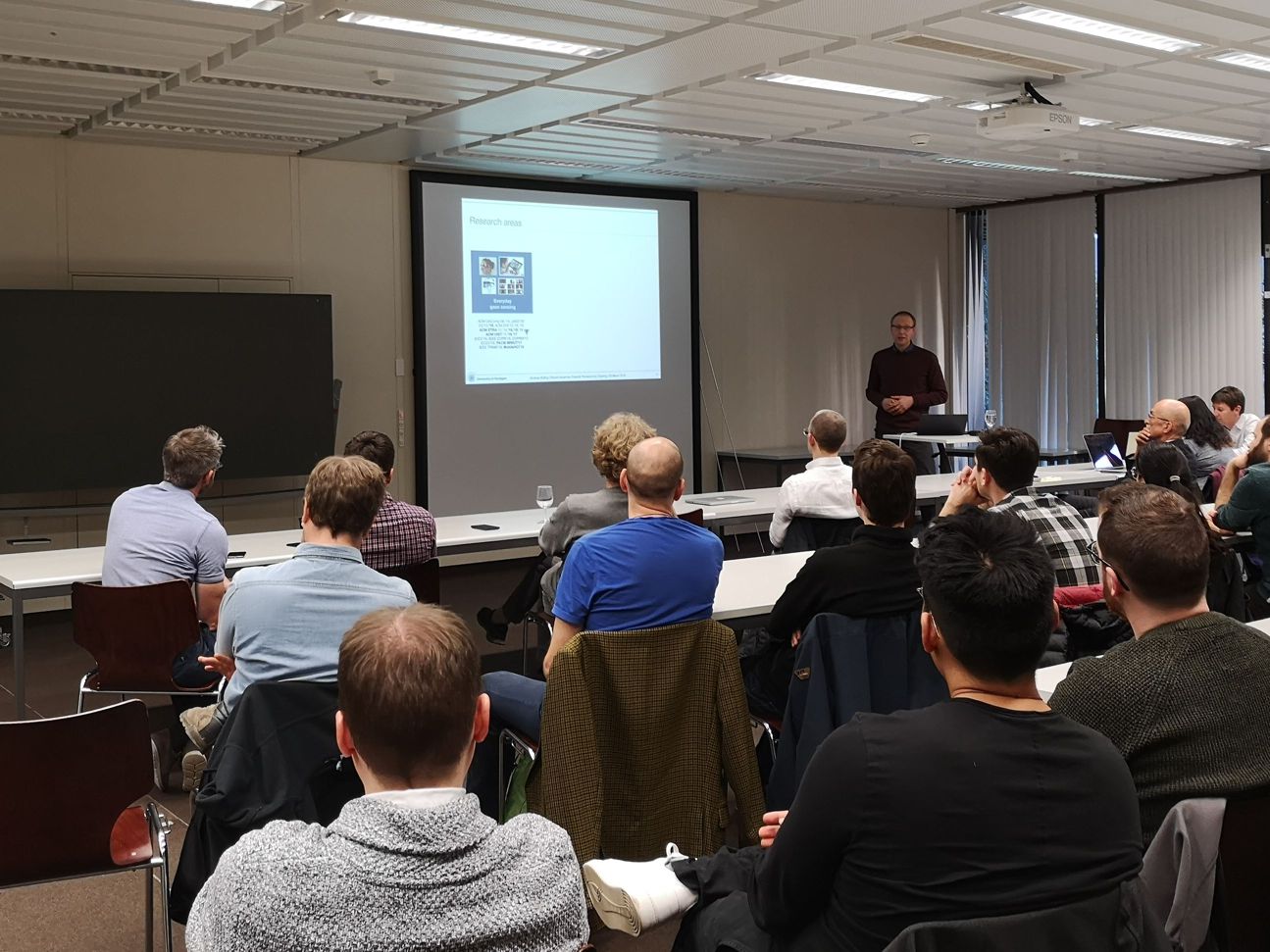D-CEET project launched
We are excited to announce the start of D-CEET, a new project with Lufthansa Aviation Training (LAT), funded by the German Federal Ministry for Digital and Transport (BMDV) in the scope of the mFund innovation initiative.
Today, training for airline crew members takes place almost exclusively in elaborately reproduced cabin dummies and simulators, so-called CEETs (Cabin Emergency Evacuation Trainers). The aim of the D-CEET project is to fully replicate an Airbus A320 CEET as a “digital twin”. The resulting data model is intended to enable fully immersive training of all relevant training content in virtual reality (VR) and additionally as a tablet-based application.
In our sub-project, we will validate the effectiveness of the new training concept using eye tracking and other physiological sensors in systematic studies with crew members. We aim at validating the achievement of competence objectives by measuring and observing behavior as well as by measuring situational awareness and cognitive workload.
Read more about the D-CEET project in a recent press release by LAT, on our website, or on the BMDV website (German only).

Image: Lufthansa Aviation Training GmbH





















